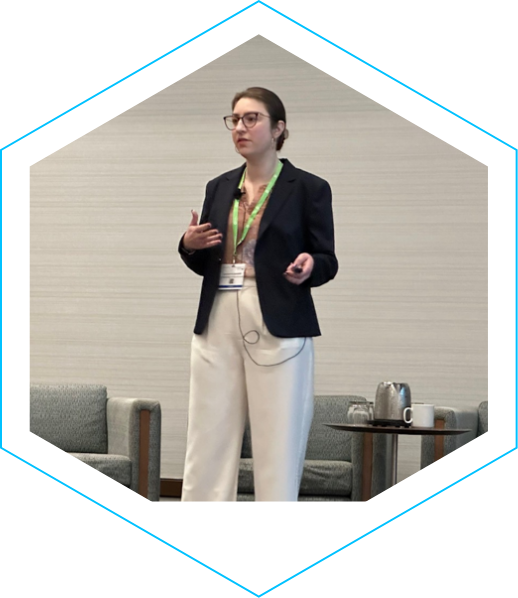
8th Winter Process Chemistry Conference
Event overview

The 8th Winter Process Conference will showcase presentations from International Chemists covering all aspects of Process Development.
The speakers will discuss the latest issues in synthetic route design, development and optimisation, reactor design, work up and purification, crystallisation, process engineering, hazard studies and quality and regulatory issues.
The presentations will be either from speakers within the chemical industry or academics with a strong link to industrial process development so the material presented with be of particular relevance to all chemists and engineers in industry as well as graduate students considering a career in industry.
QUOTIENT SCIENCES SITE VISIT
Quotient Sciences is hosting a special ‘invite-only’ event at their local GMP facility during this year’s Winter Process Chemistry Event on Tuesday, 6th Dec.
Join us for a tour of our state-of-the-art Alnwick site and get a glimpse inside our formulation, analytical, bioanalysis, and radiosynthesis laboratories and drug substance and drug product manufacturing suites.
After the tour, our Principal Research Fellow, Dr Paul Quigley, will provide you with an overview of our fully integrated drug substance and drug product manufacturing capabilities that have been proven to accelerate development timelines, reduce R&D costs and minimize risks.
End the event by mixing and mingling with our onsite team of drug substance & drug product experts while enjoying tasty canapes, beverages, and scientific discussions.
Please register your interest when booking your place at the conference. Alternatively please email [email protected]
Places are limited, so will be on a first come first served basis
YOUNG CHEMIST AWARD
Scientific Update are inviting 2nd , 3rd or 4th year PhD students to present their work at the above conference. This award is aimed at those who are considering a career in process chemistry in industry (including pharmaceuticals, fine chemicals, agrochemicals, flavour & fragrance and speciality chemical industries) and will give them an opportunity to meet and network with key industrial leaders and discover potential career options. The 10 successful candidates will be invited to attend the above conference, free of charge, present their work during a 5 minute flash presentation session and present a poster. Prizes will also be awarded for the best presentation and best poster during the meeting.
The Young Chemist Award is sponsored by:
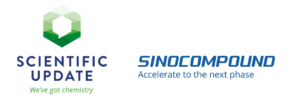
Benefits of Attending
- Benefit by hearing from key speakers who will present detailed case studies.
- Learn how to design for efficiency and optimise your development objectives.
- Access how industry strategies are evolving to meet today’s challenges.
- Learn how your peers are developing solutions to common problems.
- Gather important information on technical developments and equipment.
- Bring yourself up-to-date on current developments and future trends in pharmaceutical development.
- Meet and network with the key people working in the pharmaceutical industries.
- Save time by picking up essential tips from experts in their fields.
WHO SHOULD ATTEND?
- Academics
- Students
- Industrialists
SPONSORS
If you are interested in Sponsoring this event we still have some great sponsorship opportunities available at the conference. See our sponsorship section on the advantages that sponsorship can bring to your business or contact Dr Claire Francis at [email protected]
Event speakers

Ian J. S. Fairlamb was born in Crewe (England) in 1975, and was brought up in the south east of Cheshire, going to high school in Congleton. Following undergraduate Chemistry study at Manchester Metropolitan University, he remained as a Ph.D. student, working with Dr. Julia M. Dickinson on squalene synthase inhibitors (1996/9). He then moved on to work as a post-doctoral researcher with Prof. Guy C. Lloyd-Jones in Bristol (2000/1), on the complex mechanisms involved in palladium catalysis. He was subsequently appointed as Lecturer in Organic Chemistry in York in October 2001, and then awarded a Royal Society University Research Fellowship (2004/12) to further develop independent research projects. He was promoted to full Professor in Organic Chemistry (2010) and has remained in York for his independent academic career. Professor Fairlamb’s research interests are in transition metal catalysis, mechanistic studies, reaction discovery and use of automation (robotic systems) in accelerating mechanistic understanding and improving catalyst performance.
Professor Fairlamb has received several awards for the research which he has been involved with, including the RSC Meldola medal and prize (2003), Corday-Morgan medal and prize (2016), and a team Horizons prize (2021). He has also been recognized by awards associated with Industry including an Astra-Zeneca prize (2007) and SCI Process Chemistry research prize (2019).
Professor Fairlamb currently leads a group of 20 researchers in York, involving collaboration with several academic, industrial and science facilities (STFC Central Laser Facility) groups.

Christoph Schotes was born and raised in Mönchengladbach, Germany. In 2003 he started his bachelor studies in chemistry at the Technical University of Munich before moving to Switzerland to finish his master’s degree at the ETH Zurich in 2008. He composed his PhD thesis in the research group of Prof. Antonio Togni and Prof. Antonio Mezzetti on Ruthenium/PNNP-catalyzed asymmetric Diels-Alder and Ficini reactions, for which he was rewarded the medal of the ETH Zürich for outstanding PhD thesis in 2011. In the following two years he performed post-doctoral research in collaboration with Firmenich SA on ruthenium-catalyzed asymmetric carbonyl hydrogenation and at the University of Freiburg with Prof. Bernhard Breit on the total synthesis of Largazole derivatives by rhodium-catalyzed hydrocarboxylation.
He started his career in the chemical industry with Solvias AG in Basel in 2013 as a project leader, working on asymmetric catalysis and route scouting for multiple clients from the Pharma and CropScience industry. In 2014 he took up his first position within Bayer AG as a head of laboratory in Process Research (CropScience). Since 2018 he is head of laboratory and project manager at Chemical Process Development, within the “AI Manufacturing Innovation” department of the Bayer CropScience division. His work focusses on scaling-up process from lab scale to multi-hundred metric ton scale and solving all the associated chemical, technical, and regulatory issues. His specialties are asymmetric catalysis and technological innovation, which he furthers in collaboration with several industrial and academic partners. He is (co-)author of 14 scientific papers and 14 process patent applications.

Thomas Ronson is an Associate Principal Scientist at AstraZeneca working on the process development and scale up of active pharmaceutical ingredients. He began his career at AZ as a specialist in the high throughput experimentation and catalysis group, following a PhD in organic synthesis and catalysis at the University of York and postdoctoral positions in York and Antwerp, Belgium.

Alice completed her PhD in Chemistry at UCL working to integrate biocatalysis with heterogeneous catalysis. She then worked as a PDRA at Cardiff University in the Chemical Biology group using biocatalysis to access natural product analogues with applications in medicines and agriculture. Alice has been working as a Senior Scientist at CatSci for 3 years, working on a range of projects as a process development scientist, and is the biocatalysis lead at CatSci.
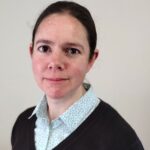
Dr Felicity Roberts is a flow chemist at Quotient Sciences, a drug development and manufacturing accelerator. Her undergraduate degree was a Masters in Chemistry with an Industrial Year from the University of Bristol, with the Industrial Year spent at DuPont in Wilmington, Delaware. She first became involved in continuous flow chemistry during her PhD at Imperial College London, working on alcohol oxidation reactions with molecular oxygen over gold nanoparticle catalysts. She then worked in the oil and gas industry for 4 years at Tracerco in Billingham, on a variety of projects including new tracers for oil wells and inkjet-printable liquid crystals. She returned to flow chemistry on moving to Quotient Sciences, and has since worked on a number of projects converting a range of reactions from batch to flow.
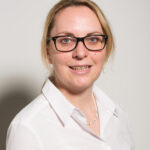
Assoc.Prof. Heidrun Gruber-Woelfler studied technical chemistry at Graz University of Technology, Austria with a focus on chemical engineering. After her PhD dealing with organometallic catalysis and molecular modelling, she did her Post-Doc in the area of continuous processes for the synthesis and purification of active pharmaceutical ingredients. In 2010 she was awarded with an Elise-Richter project by the Austrian Science Fond (FWF), which is a Career development funding for highly qualified female scientists, and started afterwards a tenure track at Graz University of Technology. Since 2014 she is the head of the research group “Continuous Synthesis and Processes” at the Institute of Process and Particle Engineering (http://ippt.tugraz.at/), Graz University of Technology and since 2016 the deputy head of this institute. After external research stays in the groups of Volker Hessel at TU Eindhoven and of Alastair Florence at CMAC, Glasgow, she finished her habilitation (venia docendi) in the field of Pharmaceutical Engineering in 2018.
Heidrun Gruber-Woelfler is principle scientist at the Research Center Pharmaceutical Engineering (RCPE, (http://www.rcpe.at/) GmbH. and since July 2017 the Deputy Director of the Center of Continuous Flow Synthesis and Processing (CCFlow) in Graz. She was awarded with the Alumni-Prize for Excellent Teaching at TU Graz in 2016, with the Anton Paar Research Award in 2019 and with the Outstanding Early-Career Paper Award by the Journal of Reaction Chemistry and Engineering in 2020. Her current projects with industrial partners and funded by national and international agencies deal with heterogeneous (bio)catalysis and continuous processes, as well as reactor design including additive manufacturing, real-time analyses and self-optimization.
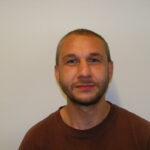
Ian Moses graduated with an M.Chem in ‘’Chemistry with Industrial Placement’’ from UMIST in 1998. As part of his degree Ian spent 1 year working in the Chemical Research & Development department of what was Astra Charnwood in Loughborough where he first discovered his passion for process chemistry. After graduating from UMIST in 1998, Ian took up a position within the Chemical Research & Development department at Pfizer Sandwich, where in his 24 years has made process development contribution to over a 100 projects, spanning 5 therapeutic areas in preclinical through to Phase 3 and commercial development. Ian continues to work in CRD at Pfizer Sandwich in Kent, UK as a Senior Principal Scientist.

I was born on the 7th of August, 1965 in Schattdorf (Switzerland), where I received my
primary and secondary schooling. After senior high school I studied Chemistry at the
ETH Zürich where I carried out my undergraduate work in the group of Prof. D.
Seebach.
Following my diploma work in 1990, I conducted my Ph. D. research under the
supervision of Prof. P. S. Pregosin, at the inorganic department at the ETH Zürich on
the synthesis of optically active tridentate nitrogen ligands and their application in Pd(II)
catalyzed aldol reactions.
From 1994 to 1995, I was post-doctoral fellow in the research groups of Prof. L. S.
Hegedus (Colorado State University, Fort Collins USA) where I prepared biologically
relevant tetraazamacrocycles via chromium carbene chemistry
1996, I spend a 6 month post-doc in the research groups of Prof. P. Knochel (Phillips
University Marburg / Germany), where I synthesized new chiral phosphine and amine
ligands for transition metal catalyzed asymmetric (transfer-) hydrogenations.
In Q4 1996, I started industrial work at F. Hoffmann-La Roche Ltd in Basel (CH). First as
a post-doc and after 1 year as a permanent member of the catalysis group at Process
Research & Synthesis. Main activities included the identification and scale-up of
transition metal catalyzed reactions (e.g. asym. hydrogenations, ring closing metathesis,
asym. reductive aminations, carbonylations) and enabling catalyst supply via in-house
preparation or collaborations with major catalyst suppliers
In 2011, I was promoted to Group Leader at Process Research & Synthesis and 2013 to
Head Process Research at preclinical CMC. In the later role, I was responsible to lead 5
lab teams in preclinical process research activities for small molecule, peptide and
oligonucleotide projects to ensure the timely hand over of robust, cost-efficient and
scalable processes to allow for API supplies for tox and clinical phase 1 studies.
In 2019, I accepted an offer to lead the Catalysis & Flow Reactions (C&FR) unit at
Synthetic Molecules Technical Development. This unit (approx. 25 team members)
targets to create and develop sustainable metal and enzyme catalyzed transformations
as well as syntheses in flow mode to support Roche`s pipeline project most effectively.

Dr Charlotte Willans obtained her MChem degree from the University of York, conducting a research project at DSM (Netherlands) with Profs Johannes de Vries and André de Vries on palladium catalysed cross-coupling reactions. She completed her PhD at the University of York working with Prof Francesca Kerton and Prof Jason Lynam on lanthanide catalysis and organophosphorus cages. She completed a postdoctoral position with Prof Jonathan Steed in Durham, working on MOFs and metal-N-heterocyclic carbenes. Charlotte was awarded a Royal Society Dorothy Hodgkin Fellowship which she took to Leeds in 2009, where she is now Associate Professor. Independent research has included organometallic chemistry, ligand design, catalysis and cancer therapeutics. More recently Charlotte has developed electrochemical synthetic methods to metal compounds, flow technology a catalysis screening platform.

With a background in Chemical engineering and Organic chemistry, Elisabete is a Principal Chemist at Hovione R&D Process Chemistry Development group since 2003. Her work focusses on the development and optimization of innovative and robust processes for Active Pharmaceutical Ingredients (APIs) for new medicinal entities. While building sustainable processes and minimizing environmental impact through the application of Quality by Design (QbD) and process modelling approaches, she is committed with the efficient scale-up from lab to multi-hundred metric ton scale.

Dr Dyanne Cruickshank is a Senior Scientist at Veranova (Pharmorphix®) and has worked on a wide range of projects in the solid form crystallisation space. These projects range from polymorphism, salt and cocrystal screens to developing robust crystallisation processes to obtain the desired crystalline form, amongst others. She completed her PhD at the University of Cape Town (UCT), which focussed on the physicocohemical properties of solid-state cyclodextrin inclusion complexes and then held postdoctoral positions at UCT, and the University of Bath. Before joining Veranova she worked as an application scientist for Rigaku Oxford diffraction with a focus on the single crystal X-ray instruments.
Sponsors
Platinum Sponsors

Bronze Sponsors



Interested in sponsoring an event?
If you are interested in Sponsoring this event we still have some great sponsorship opportunities available at the conference. See our sponsorship section on the advantages that sponsorship can bring to your business or contact Dr Claire Francis at [email protected]
Exhibitors

Allotrope Scientific Ltd
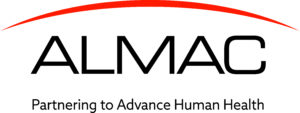
Almac
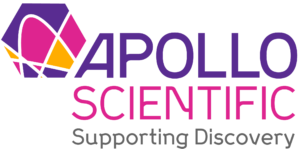
Apollo Scientific

Asymchem

BLD Pharmatech GmbH

Deepmatter
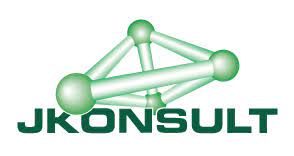
JKonsult Ltd
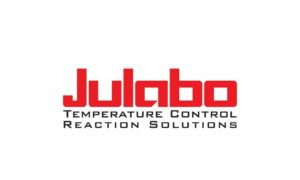
Julabo
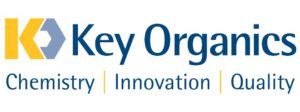
Key Organics
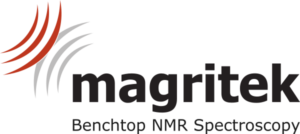
Magritek

Manchester Organics

PhosphonicS

Radleys

Sterling Pharma Solutions

Teledyne

ThalesNano

Vapourtec Ltd
Why exhibit?
- Meet delegates from key international companies
- Interact directly with senior scientists, department heads and key decision-makers
- Ability to demonstrate your company’s products or services
The conferences are designed to provide exhibitors with the maximum time to network with delegates.
Other Information
Benefits of Attending
- Continuing Professional Development (CPD ) keeps you up to date on current and emerging developments.
- Learn from a wide range of industrial case studies given by hand-picked industrial speakers.
- Take home relevant ideas and information that are directly applicable to your own work, with the full proceedings in colour and a CD of the talks.
- Save time. Our intensive, commercial-free programme means less time away from work.
- Meet and network with the key people in the industry in a relaxed and informal atmosphere.
General Information
Registration for each conference includes:
- Attendance at all the sessions
- Set of colour conference proceedings
- Lunch & refreshments daily
- Unlimited access to the exhibition
- Place at the networking reception
Why Exhibit?
- Meet delegates from key international companies
- Interact directly with senior scientists, department heads and key decision-makers
- Ability to demonstrate your company’s products or services
The conferences are designed to provide exhibitors with the maximum time to network with delegates.
Sponsorship
Promote your company at one of our prestigious conferences with sponsorship packages to suit your budget.
Please contact Dr Claire Francis or call on +44 (0)1435 873062.
Discounts
Free Poster Board
Registered academic delegates can present a scientific technical poster FREE and have this published in the conference proceedings.
Please send an abstract of your poster by email.
8th Winter Process Chemistry Conference
Programme

View our programme
Fee info
Venue info
Bottle Bank
Newcastle Upon Tyne
NE8 2AR
UK
It was good. Never visited a Scientific Update conference, but will get it on my priority list. Very good – like the set-up, flow and topics. Very interested in process development.
Organic Process Research & Development Conference Delegate 2023
Thank you for the excellent conference. I enjoyed the scientific content and the networking opportunities. I will definitely recommend this conference to my colleagues.
The Formulation and Drug Delivery Congress Delegate
Become a speaker at one of our events
Share your expertise with a global audience of industry professionals. Scientific Update is continually seeking thought leaders and industry innovators to speak at our renowned conferences and training courses.
